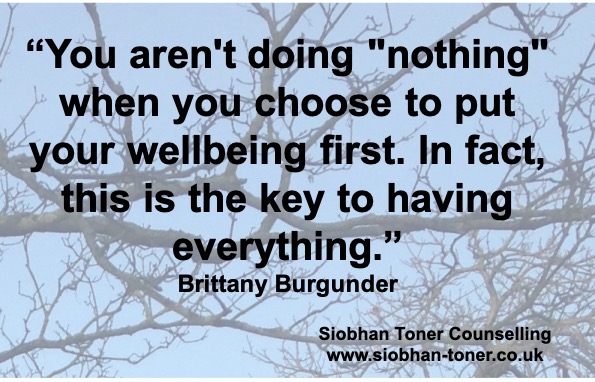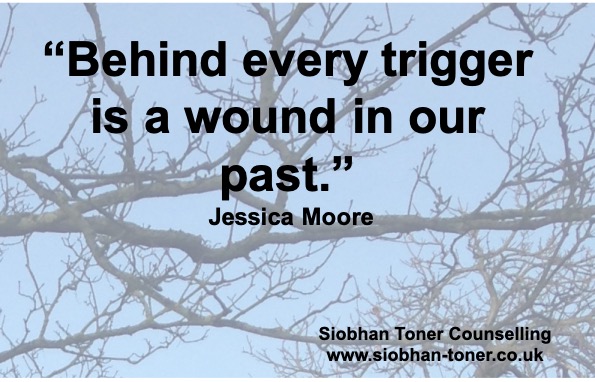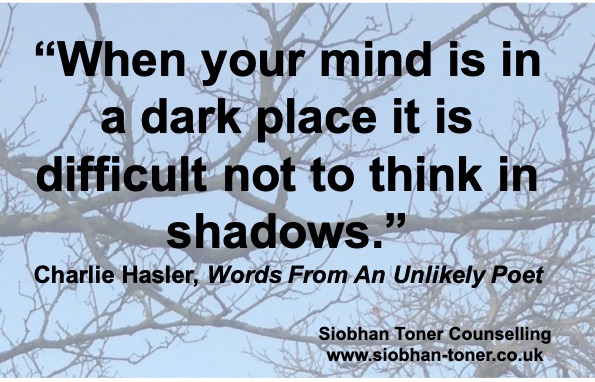
Thursday Thoughts


Counselling in London or online
Siobhan Toner offering individual one-to-one therapy in London or online


I see more online about family estrangements and separated families. While its always a risk going into comment sections of social media I also find it interested how people view these situations.
Now, like everyone else apart from those directly involved, I don’t know the full story of what is being posted. I do know the stories of many people (including my own) of those who have chosen to cease contact with family members. It’s never an easy choice and it usually comes after years or decades of toxic or abusive relationships. Within those relationships, all parties may have displayed behaviour they are not proud of; they may have tried to repair things unsuccessfully; they may have papered over the cracks again and again.
Each story will be different. What isn’t helpful is other people who are on the outside passing judgments. These judgements are at best unwelcome and also potentially damaging and abusive.
I was reminded recently of the request by many school for parents not to take photos at school plays because they may contain images of other children who are at risk. With these being put on social media, then they can be traced must easier. I am sure there are people who object to this as their experiences have meant that haven’t had to consider these things. It’s the same with judging separated families.
Without the experiences then it may not be obvious why people make the choices they make. Instead of judging or worse interfering in a way that can put people at risk, try and ask yourself what would lead someone to make a choice like that?
If you haven’t had a family like this, then please recognise what a privilege that is for you. A secure loving family of one of the greatest advantages anyone can have. The evidence on adverse childhood experiences which I have written about before show just what an advantage this gives to you.
If you have made a choice to remove contact with a family member, then I am sorry you have needed to and I wish you well. It can seem so much harder in December dealing with these issues as family celebrations are promoted to us everywhere.

I’ve been thinking a lot about how the current health crisis is affecting or will impact all our mental health.
I’ve found myself thinking about it more and more and worrying about what I should or shouldn’t do. I’ve also notice I’ve been having dreams that I am a lot more anxious during and after when I wake up.
It is bound to have an impact but we can all do things to help support our mental wellbeing. This article has some useful tips.
Putting some of these into practice will take time and persistence, however, the benefits may be very valuable.
Self care may not always be easy, but I wish you well with it.
The BBC news website published an interesting article about counsellors this week. The titles, counsellor, therapist, psychotherapist are not protected. This means that anyone can advertising themselves as one regardless of their qualifications.
This is why therapists like myself who have studied on courses that meet the requirements of a membership body usually mention this on their website. To give clients more confidence in our experience and professionalism.
I am a member of the British Association of Counselling and Psychotherapy (BACP). If you wanted to check that, you can search for my name on their register.
It is voluntary to be a member of one of these bodies. However, the majority of counsellors choose to join one. The governments Professional Standards Register recommends you choose a counsellor who is a member of one of a number of bodies and the list can be found here.
It’s such a hard choice to walk away from someone and can bring up loads of different emotions.
This video clearly explains why sometimes it is the right choice, despite the challenges.
There are so many terrible headlines at the moment about violence and murder, not just in London but across the country.
What they don’t really show is the impact of these crimes on extended families and friends. Loosing someone you know by a murder is devastating, even if it’s an acquaintance. It is so much worse for the families and loved ones.
How do you explain it to children and young people. How do you support them through the ongoing process of trying to make sense of something so senseless? How do you support them when you need support yourself?
There is a fantastic organisation, Winstons Wish which supports bereaved children and their families. They also have a whole section dedicated to resources when the bereavement is due to murder or manslaughter.
I came across this very interesting article about the frequently used statistic that one on four of us have issues with mental health.
We get so caught up in categorising mental health issues that we sometimes forget that we all have mental health. At times for some of us it it robust and resilient and for others it isn’t and needs support.
We are all impacted by the human condition and events that can cause us distress. There shouldn’t be stigma in needing support at such times.
I have clients of all ages bringing issues connected to loneliness. Loneliness isn’t about being alone, it’s about being disconnected from others.
This week is loneliness awareness week, explore some of the events here and see if trying something different might help you.